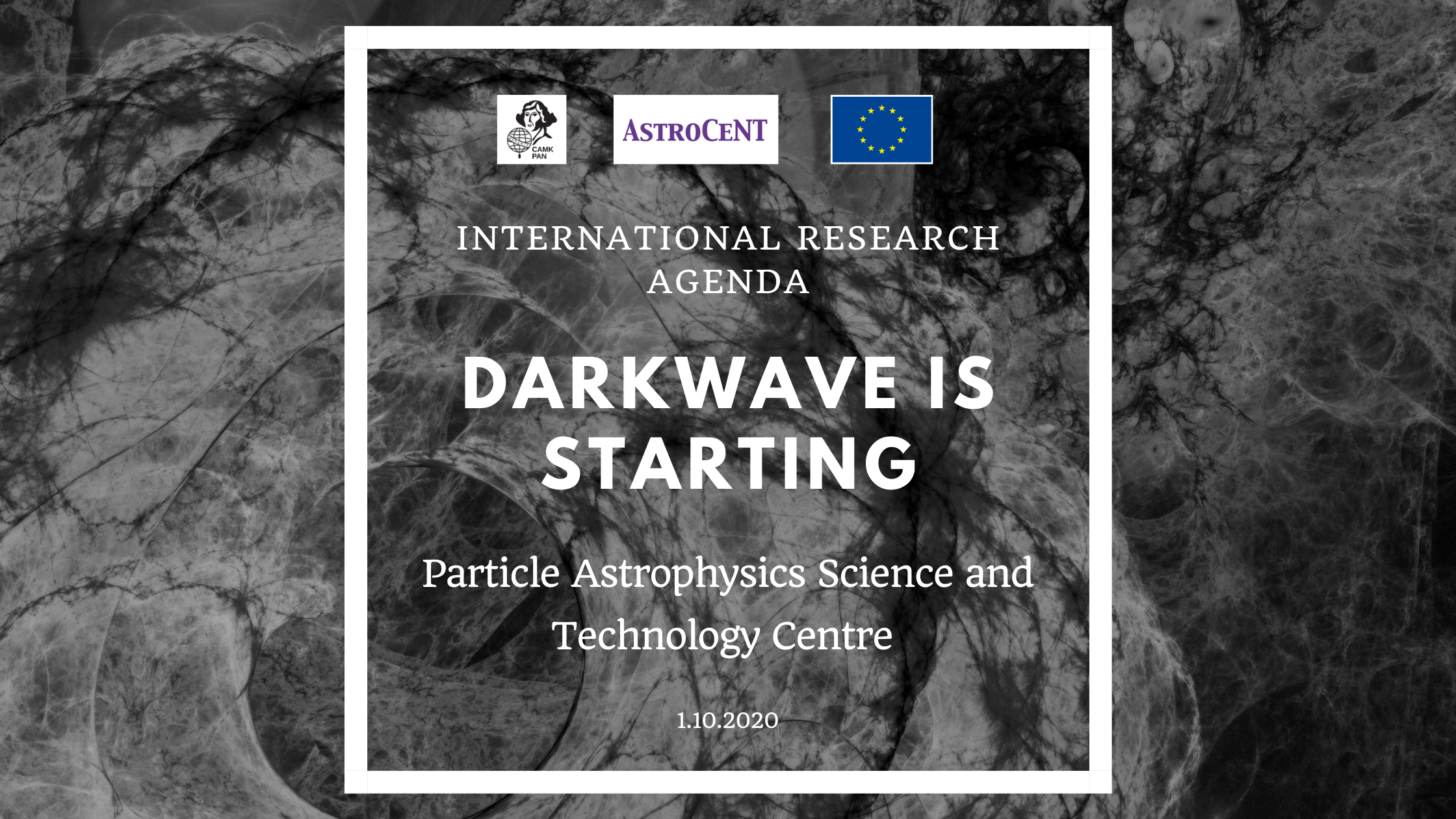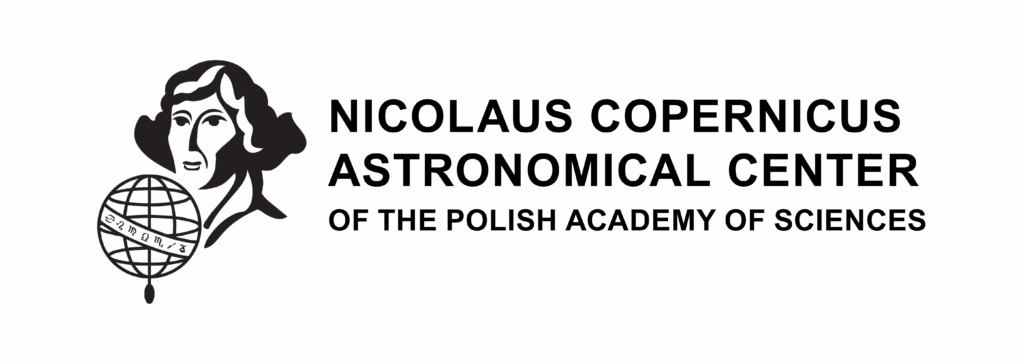What is the nature of the mysterious dark matter, which is the dominant form of matter present in the Universe and which has given it its current shape? Why is there more matter than antimatter? What information about the Universe can be found in gravitational waves? Which technologies are best suited to study these fundamental puzzles of modern astrophysics?
These questions are the main focus of the DarkWave project (supported by the European Commission from the Horizon 2020 Twinning scheme), which is starting on 1 October 2020. DarkWave consortium, directed by Dr Marcin Kuźniak and with active participation of all other AstroCeNT group leaders, consists of Nicolaus Copernicus Astronomical Center as the coordinating institution, Gran Sasso Science Institute (GSSI), Instituto Nazionale di Fisica Nucleare (INFN), Technical University of Munich (TUM), and Laboratoire Astroparticule et Cosmologie of Centre National de la Recherche Scientifique (APC/CNRS).
The main objective of the project is strengthening the collaboration between these leading research centers working on topics of dark matter, neutrino and gravitational wave research. The grant will enable scientific exchange and mobility between AstroCeNT and other beneficiaries, in particular travel, extended research stays, workshops and training.
Collaboration within the consortium will significantly enhance the scientific and technological capacity of Astrocent by:
– establishing a technological hub with a focus on the novel silicon photomultiplier (SiPM) technology by the end of the grant period, through cooperation with INFN and GSSI, key institutions within Global Argon Dark Matter Collaboration (GADMC) focused on SiPM development and production
– securing direct participation of our researchers and high impact contributions to the construction of the DarkSide-20k detector, the next generation experiment to search for dark matter particles within the scope of GADMC-exploring technological synergies with the global programs for:
– long baseline neutrino oscillation experiments (DUNE), which can shed light on the matter / antimatter asymmetry puzzle
– gravitational wave detection, a new observational window onto Universe, which has been recently opened
– enhancing administrative and project management skills and the potential to attract further funding, by following the best practices of our partner institutions.







